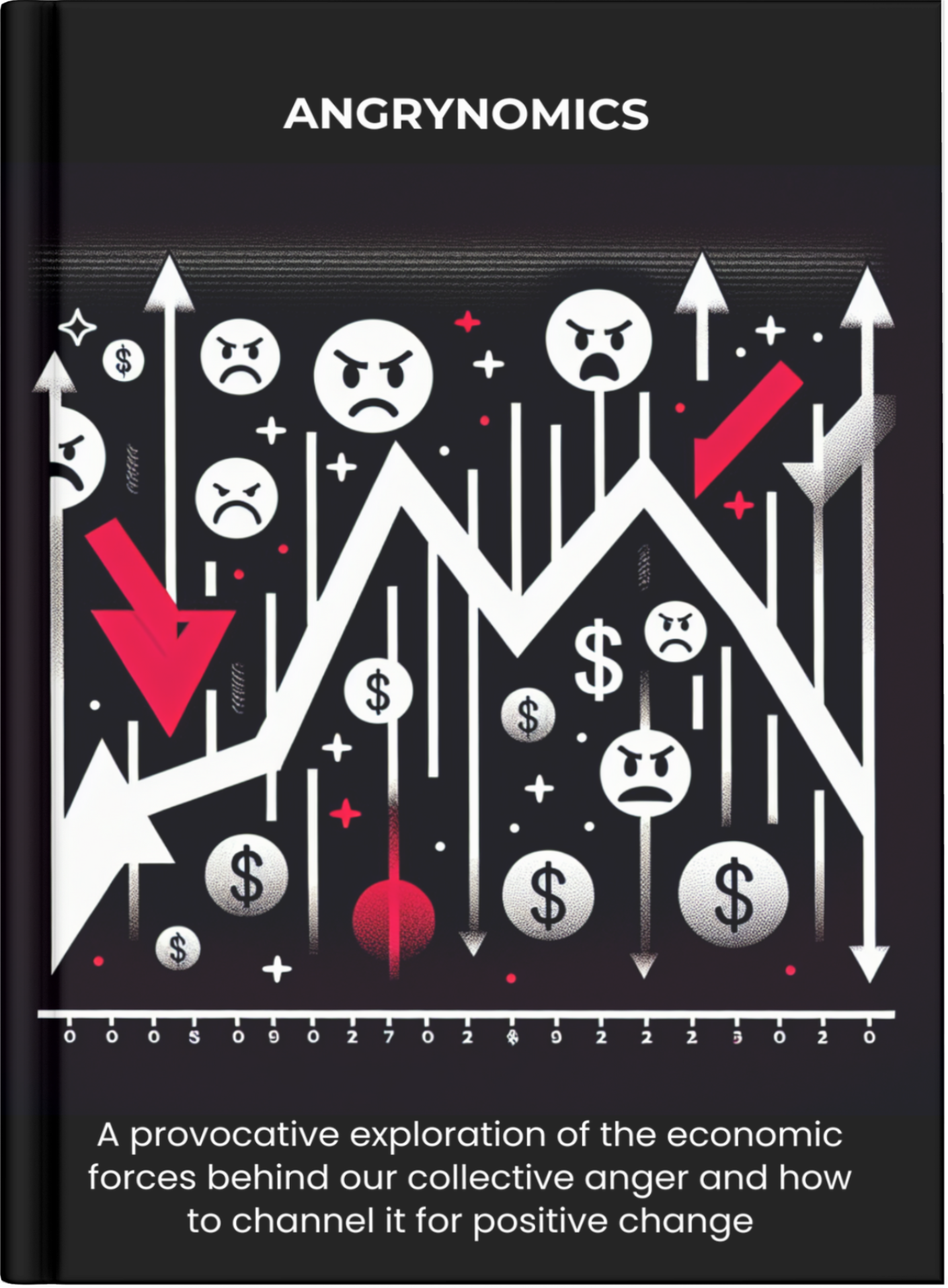
Angrynomics
Eric Lonergan and Mark Blyth
Angrynomics by Eric Lonergan and Mark Blyth explores the rising tide of anger in contemporary politics and economics. The authors argue that this anger is a rational response to systemic failures and propose solutions to address the underlying issues. The book combines economic theory with real-world examples to explain why people are angry and what can be done to mitigate this anger.
0:000:00
Keypoint 1: The Nature of Anger
Anger is a powerful emotion that has both personal and societal implications. It is often perceived negatively, but it can also serve as a catalyst for change. In the context of 'Angrynomics,' anger is examined as a rational response to systemic failures in both the economic and political spheres. This anger is not just an emotional outburst but a signal that something is fundamentally wrong.
The book delves into the different types of anger, distinguishing between moral outrage and personal frustration. Moral outrage is often directed at perceived injustices and systemic issues, such as economic inequality or political corruption. This type of anger can mobilize people to demand change and hold those in power accountable. On the other hand, personal frustration is more individualistic, stemming from personal experiences of unfairness or failure. While both types of anger are valid, they manifest differently and have different implications for society.
Understanding the nature of anger involves recognizing its triggers. Economic disparities, lack of social mobility, and political disenfranchisement are common sources of anger. When people feel that the system is rigged against them, their anger becomes a rational response to their circumstances. This is particularly evident in the rise of populist movements and the increasing polarization in politics. People are not just angry for the sake of being angry; they are responding to real grievances that have not been addressed by traditional institutions.
The book also explores the psychological aspects of anger, noting that it can be both constructive and destructive. Constructive anger can lead to positive change by motivating individuals and groups to take action. Destructive anger, however, can result in violence and further division. The challenge lies in channeling anger in a way that leads to constructive outcomes. This requires a deep understanding of the underlying issues and a willingness to engage in meaningful dialogue.
In summary, the nature of anger in 'Angrynomics' is complex and multifaceted. It is a rational response to systemic failures and a powerful force that can drive both positive and negative outcomes. By understanding the different types of anger and their triggers, we can better address the root causes and work towards a more equitable and just society.
The book delves into the different types of anger, distinguishing between moral outrage and personal frustration. Moral outrage is often directed at perceived injustices and systemic issues, such as economic inequality or political corruption. This type of anger can mobilize people to demand change and hold those in power accountable. On the other hand, personal frustration is more individualistic, stemming from personal experiences of unfairness or failure. While both types of anger are valid, they manifest differently and have different implications for society.
Understanding the nature of anger involves recognizing its triggers. Economic disparities, lack of social mobility, and political disenfranchisement are common sources of anger. When people feel that the system is rigged against them, their anger becomes a rational response to their circumstances. This is particularly evident in the rise of populist movements and the increasing polarization in politics. People are not just angry for the sake of being angry; they are responding to real grievances that have not been addressed by traditional institutions.
The book also explores the psychological aspects of anger, noting that it can be both constructive and destructive. Constructive anger can lead to positive change by motivating individuals and groups to take action. Destructive anger, however, can result in violence and further division. The challenge lies in channeling anger in a way that leads to constructive outcomes. This requires a deep understanding of the underlying issues and a willingness to engage in meaningful dialogue.
In summary, the nature of anger in 'Angrynomics' is complex and multifaceted. It is a rational response to systemic failures and a powerful force that can drive both positive and negative outcomes. By understanding the different types of anger and their triggers, we can better address the root causes and work towards a more equitable and just society.

